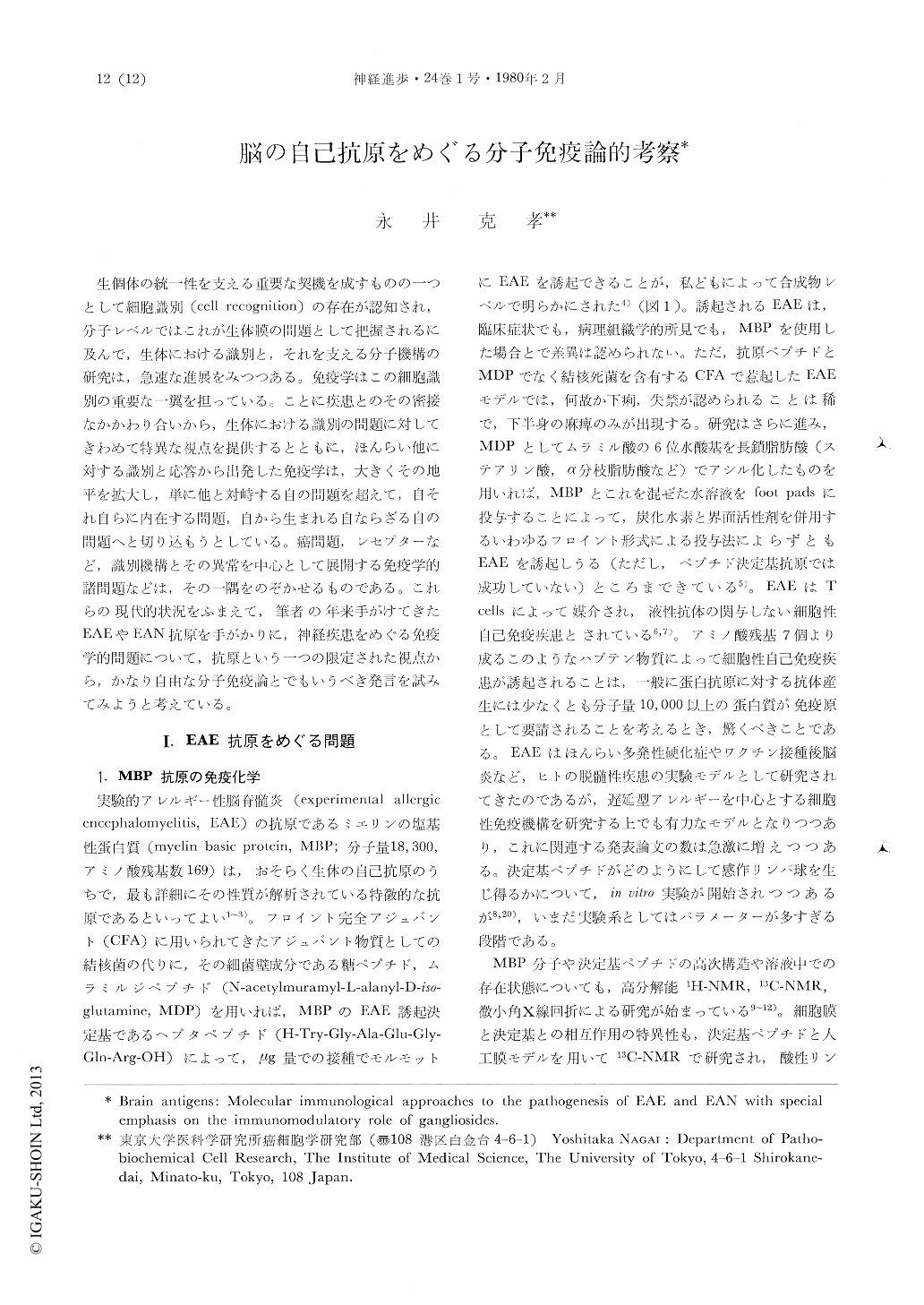Japanese
English
- 有料閲覧
- Abstract 文献概要
- 1ページ目 Look Inside
生個体の統一性を支える重要な契機を成すものの一つとして細胞識別(cell recognition)の存在が認知され,分子レベルではこれが生体膜の問題として把握されるに及んで,生体における識別と,それを支える分子機構の研究は,急速な進展をみつつある。免疫学はこの細胞識別の重要な一翼を担っている。ことに疾患とのその密接なかかわり合いから,生体における識別の問題に対してきわめて特異な視点を提供するとともに,ほんらい他に対する識別と応答から出発した免疫学は,大きくその地平を拡大し,単に他と対峙する自の問題を超えて,自それ自らに内在する問題,自から生まれる自ならざる自の問題へと切り込もうとしている。癌問題,レセプターなど,識別機構とその異常を中心として展開する免疫学的諸問題などは,その一隅をのぞかせるものである。これらの現代的状況をふまえて,筆者の年来手がけてきたEAEやEAN抗原を手がかりに,神経疾患をめぐる免疫学的問題について,抗原という一つの限定された視点から,かなり自由な分子免疫論とでもいうべき発言を試みてみようと考えている。
Abstract
This article deals with the immunochemical characterization of brain antigens such as myelin basic protein (MBP), peripheral nerve myelin P2 protein, galactocerebrosides and gangliosides, with particular emphasis on their immunopathological participation in the pathogenesis of experimental (EAE and EAN) as well as human demyelinating diseases.
MBP and its derived determinant peptide can induce by themselves EAE, while EAN antigen requires for its immunopathogenic expression an additional factor that is related to the conforma-tion of the antigenic protein molecules.

Copyright © 1980, Igaku-Shoin Ltd. All rights reserved.


